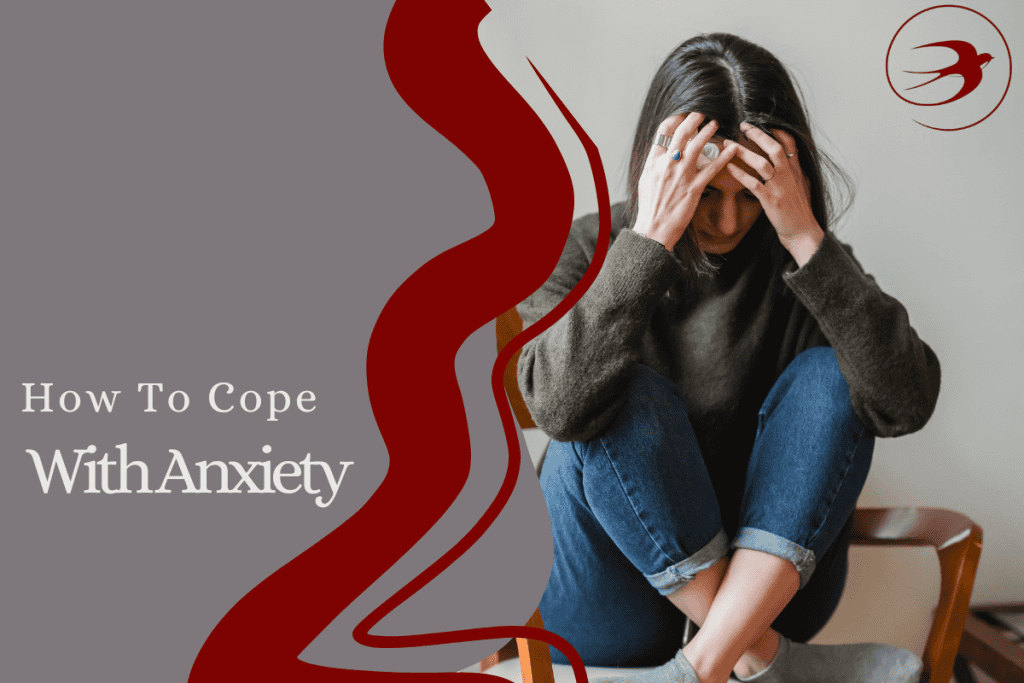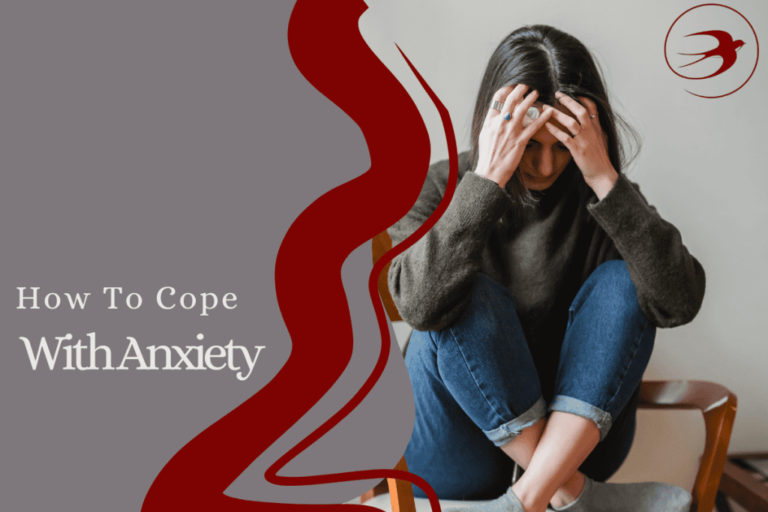
Anxiety is something almost everyone experiences at some point in their life. It can range from feeling nervous before a big test to a constant, overwhelming worry that seems to never go away. Understanding what anxiety is, why it happens, and how to manage it is essential for maintaining mental health and well-being.
1. What is Anxiety?
Anxiety is a natural emotional response to stress, danger, or uncertainty. It is characterized by feelings of fear, worry, or nervousness. Everyone experiences anxiety from time to time, but when these feelings become overwhelming or last for long periods, they can interfere with daily activities and overall mental health.
The body’s response to anxiety is often referred to as the “fight-or-flight” response. This response prepares the body to either face the threat or escape from it. For example, when you’re faced with a stressful situation like giving a presentation or meeting new people—your heart may race, you may sweat more, and your thoughts might become jumbled. These physical reactions are your body’s way of getting ready to deal with the stressor.
2. Causes of Anxiety
Anxiety can be caused by a variety of factors, including:
- Genetics: Some people are more predisposed to anxiety due to their family history. If anxiety disorders run in the family, you might be more likely to experience anxiety yourself.
- Life Experiences: Traumatic or stressful experiences, such as abuse, loss of a loved one, or major life changes, can trigger anxiety. Even childhood trauma can have long-lasting effects on mental health.
- Brain Chemistry: Imbalances in certain chemicals in the brain, like serotonin and dopamine, can contribute to anxiety. These chemicals are responsible for regulating mood, and when they are out of balance, it can lead to anxious feelings.
- Health Conditions: Some medical conditions, such as heart disease or thyroid problems, can lead to anxiety. Additionally, certain medications may cause side effects that include anxiety.
- Environmental Stress: High levels of stress from work, school, relationships, or financial problems can lead to anxiety. Continuous pressure can take a toll on mental health and increase anxiety levels.
3. Types of Anxiety Disorders
There are several different types of anxiety disorders, each with its own characteristics. Here are some of the most common:
- Generalized Anxiety Disorder (GAD): This type of anxiety is marked by persistent and excessive worry about various aspects of life, such as work, health, and social interactions. The worry can become overwhelming and difficult to control.
- Social Anxiety Disorder (SAD): People with social What is Anxiety and How to Cope with It experience intense fear or anxiety about social situations. They worry excessively about being judged or embarrassed by others.
- Panic Disorder: Panic disorder is characterized by sudden, intense feelings of fear or discomfort that come without warning. These episodes, called panic attacks, can cause physical symptoms like chest pain, dizziness, or difficulty breathing.
- Phobias: A phobia is an intense fear of a specific object, situation, or activity. Common phobias include fear of heights (acrophobia), fear of spiders (arachnophobia), or fear of flying (aviophobia).
- Obsessive-Compulsive Disorder (OCD): OCD involves repetitive, intrusive thoughts (obsessions) and compulsive behaviors or rituals (compulsions) performed to reduce anxiety. For example, someone with OCD might wash their hands excessively due to a fear of contamination.
- Post-Traumatic Stress Disorder (PTSD): PTSD can occur after experiencing a traumatic event. People with PTSD may relive the event through flashbacks or nightmares, and they may avoid reminders of the trauma.
4. Symptoms of Anxiety
The symptoms of anxiety can vary from person to person, but common signs include:
- Physical Symptoms: Increased heart rate, shortness of breath, dizziness, trembling, headaches, sweating, or gastrointestinal issues like nausea.
- Emotional Symptoms: Persistent worry, fear, irritability, restlessness, or feeling overwhelmed.
- Cognitive Symptoms: Difficulty concentrating, racing thoughts, constant self-doubt, or an inability to relax.
Anxiety can also manifest in behavioral changes, such as avoiding certain situations or withdrawing from social interactions.
5. How Anxiety Affects Daily Life
When anxiety becomes chronic, it can significantly impact everyday life. People with anxiety may find it difficult to focus at work or school, engage in social activities, or even take care of themselves. Relationships can suffer due to misunderstandings or withdrawal from others, and physical health may decline due to stress-related factors like poor sleep, lack of exercise, or unhealthy coping mechanisms.
Managing anxiety is crucial to maintaining a healthy lifestyle, and there are effective strategies to cope with the symptoms.
6. Coping Strategies for Anxiety
While anxiety can feel overwhelming, there are many ways to manage it and regain control of your life. Here are some practical tips to help you cope with anxiety:
- Breathing Exercises: Slow, deep breathing helps activate the body’s relaxation response. Try the 4-7-8 method: inhale for 4 seconds, hold your breath for 7 seconds, and exhale for 8 seconds. This can help reduce feelings of anxiety quickly.
- Mindfulness and Meditation: Practicing mindfulness helps you stay present and focused on the current moment, rather than worrying about the future or dwelling on the past. Meditation can also help calm your mind and reduce stress.
- Physical Activity: Exercise is a natural stress reliever. Physical activity increases the production of endorphins (the brain’s feel-good chemicals) and helps reduce anxiety by releasing built-up tension in the body.
- Limit Caffeine and Alcohol: Both caffeine and alcohol can increase feelings of anxiety. Reducing or eliminating these substances from your diet and exercise can help stabilize your mood.
- Healthy Sleep Habits: Lack of sleep can exacerbate anxiety, so it’s essential to get enough rest. Try to maintain a consistent sleep schedule and create a calming bedtime routine.
- Talk About It: Sharing your feelings with friends, family, or a therapist can be incredibly helpful. Sometimes just talking about your anxiety can reduce its power and help you feel supported.
- Cognitive Behavioral Therapy (CBT): CBT is a type of therapy that focuses on changing negative thought patterns and behaviors. It is one of the most effective treatments for anxiety and can help you develop healthy coping strategies.
- Medication: For some individuals, medication may be necessary to manage anxiety. Antidepressants, anti-anxiety medications, or beta-blockers may be prescribed by a doctor to help regulate anxiety symptoms.
Conclusion
Anxiety is a common but complex emotional experience that affects many people worldwide. By understanding what anxiety is and its various causes and symptoms, you can better recognize it in yourself or others. Fortunately, there are many ways to cope with anxiety, from mindfulness practices to therapy and medication. If you are struggling with anxiety, seeking professional help is a great first step toward feeling better.
Frequently Asked Questions (FAQs)
Q1: Is it normal to feel anxious sometimes?
Yes, anxiety is a normal response to stress. It’s natural to feel anxious before a big event or when facing a challenging situation. However, if anxiety becomes persistent or interferes with daily activities, it may be a sign of an anxiety disorder.
Q2: Can anxiety be cured?
While there is no definitive “cure” for anxiety, it can be managed effectively with treatment. Many people with anxiety find relief through therapy, lifestyle changes, and, if necessary, medication.
Q3: How can I know if I have an anxiety disorder?
If you experience excessive worry, physical symptoms like a racing heart, or difficulty functioning in daily life, it may be worth seeking professional help. A mental health professional can assess your symptoms and determine whether you have an anxiety disorder.
Q4: Can anxiety affect physical health?
Yes, anxiety can take a toll on physical health. Chronic anxiety may lead to high blood pressure, digestive issues, headaches, and a weakened immune system. Managing anxiety can improve overall physical well-being.






